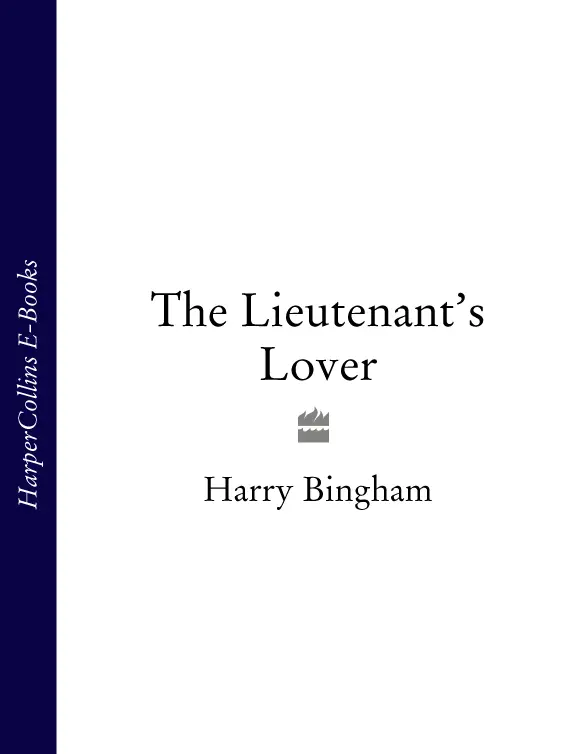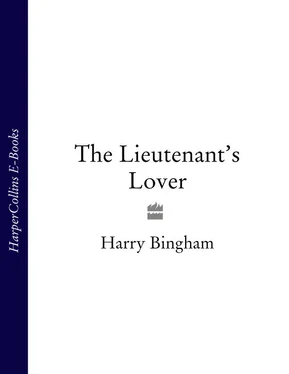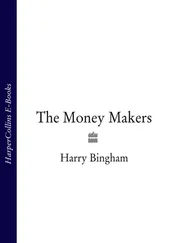
HARRY BINGHAM
Cover
Title Page HARRY BINGHAM
Dedication DEDICATION To my beloved N . ‘All shall be wellAnd all shall be wellAnd all manner of things shall be well.’ Mother Julian of Norwich
Russia, 1917 RUSSIA, 1917
One ONE 1 Misha always remembered the moment. Weeks of war had passed without fighting, just orders to advance, followed almost immediately by orders to retreat. And then one night, on another interminable journey in a troop train, it happened. It was long past midnight. The train slowed and stopped. The little country platform filled with food vendors selling hot tea, boiled beef, rye pancakes. Misha clambered out to get some clean air and pace the stiffness out of his legs. As he walked up and down, it began to snow. Small flakes at first, so light they hardly seemed to descend. But within minutes, the flakes had grown into big white feathers. They still seemed to fall so slowly that they were hardly coming down at all, but the ground quickly spread with white. Misha liked the snow, and went on pacing just as before. All around, sounds became softer, rounded, muffled. Then a new vendor came onto the platform with a bundle of papers. There was a sudden eddy of excitement, men shouting, commotion. And Misha was caught up in it. Acting by some automatic instinct, he’d reached in his pocket for a kopeck or two and snatched a newspaper from the pile. And there, under the lamplight and the falling snow, he had read the headline: ‘BOLSHEVIKS SEIZE POWER IN PETROGRAD. WINTER PALACE STORMED.’ That was all. There was a full article beneath the headline, one part fact, three parts sensational speculation. But Misha didn’t read a word of it. He didn’t have to. He was the son of a wealthy industrialist and landowner, at a time when owning industry and land had become suddenly dangerous. The Tsar was overthrown. The workers had taken over. Misha knew that his world had changed, utterly and for ever.
Two
Three
Germany, 1945
Four
Five
Six
Seven
Eight
Nine
Ten
Eleven
Twelve
Thirteen
Fourteen
Epilogue
9 November, 1989
About the Author
Other Works
Copyright
About the Publisher
To my beloved N .
‘All shall be wellAnd all shall be wellAnd all manner of things shall be well.’
Mother Julian of Norwich
RUSSIA, 1917
Misha always remembered the moment.
Weeks of war had passed without fighting, just orders to advance, followed almost immediately by orders to retreat. And then one night, on another interminable journey in a troop train, it happened.
It was long past midnight. The train slowed and stopped. The little country platform filled with food vendors selling hot tea, boiled beef, rye pancakes. Misha clambered out to get some clean air and pace the stiffness out of his legs.
As he walked up and down, it began to snow. Small flakes at first, so light they hardly seemed to descend. But within minutes, the flakes had grown into big white feathers. They still seemed to fall so slowly that they were hardly coming down at all, but the ground quickly spread with white. Misha liked the snow, and went on pacing just as before. All around, sounds became softer, rounded, muffled.
Then a new vendor came onto the platform with a bundle of papers. There was a sudden eddy of excitement, men shouting, commotion. And Misha was caught up in it. Acting by some automatic instinct, he’d reached in his pocket for a kopeck or two and snatched a newspaper from the pile. And there, under the lamplight and the falling snow, he had read the headline:
‘BOLSHEVIKS SEIZE POWER IN PETROGRAD. WINTER PALACE STORMED.’
That was all. There was a full article beneath the headline, one part fact, three parts sensational speculation. But Misha didn’t read a word of it. He didn’t have to. He was the son of a wealthy industrialist and landowner, at a time when owning industry and land had become suddenly dangerous.
The Tsar was overthrown. The workers had taken over.
Misha knew that his world had changed, utterly and for ever.
Tonya too remembered the moment.
The water butt on the landing had been frozen over, but at this time of year the ice wasn’t yet thick. A couple of axe-blows was enough to break the surface, and she’d filled the enamel jug, feeling it grow suddenly heavy as the water rushed in. She carried it through to the apartment beyond the landing.
In the living room, a cast-iron stove leaked heat and smoke in equal measure. The room was dim. In the corner by the stove, a man sat and watched Tonya enter and shrug off the thick coat which she wore over her nurse’s uniform.
‘Not working, Father?’
He grinned, showing a mouth that held just four teeth, and not one of them a beauty. ‘Why work? It’s the revolution.’ Pleased with his answer, he repeated the word, dragging it out, giving a final kick to the final syllable, revolutsya, revolutsy-a .
To begin with, Tonya had ignored him. There was the fire to stoke, water to boil, soup to make, her elderly grandmother, Babba Varvara, to care for. She didn’t know what he was talking about, but then again as his excuses for not doing his job as a railwayman were innumerable, she didn’t care much either.
But then the old man had nudged the table. There was a newspaper lying there. Tonya remembered picking it up almost angrily, irritated at the interruption. And there it was, in simple words, black on white. The Winter Palace was stormed. The Tsar was captured. The workers were in control.
For a moment, perhaps only a second, Tonya remembered thinking that this must be good news. She was a worker, wasn’t she? If their class was victorious, then things would get better wouldn’t they? She looked back at her father, who grinned again. His mouth was like a black hole thumbed into the dark grey shadow of his face.
‘ Revolutsy-a ,’ he repeated, nastily. ‘ Revolutsy-a .’
The word was ominous, and it sounded like death.
Misha had stood beneath the lamplight, reading and rereading that headline, ignoring the snow that fell continuously on his arms, head and neck. And then, after perhaps twenty minutes of shocked thought, he’d jerked his head up. It had become obvious that his time in the army was over, that it was his duty to desert, to seek out his family, to see that everyone was all right.
Nothing had been easier. He’d simply walked down the platform, away down the track out of the lamplight. He’d sheltered there in the bushes till the train whistled and moved off, taking his commander and fellow soldiers with it. When day had come, he’d wound a dirty bandage around his head and darkened it with blood from a dead pigeon. Going back to the railway station, he’d barged and begged his way onto the first train that came along. It had taken three weeks to cross the country. He’d had to evade the military police, to bribe guards, to walk long distances wherever the train services had completely stopped working. But he’d done it. He’d come home to Petrograd, the city of his birth.
The family home, a big mansion on Kuletsky Prospekt, stood in front of him. At first glance, nothing had changed. The great sweep of steps was still there, the iron railings, the glittering expanse of windows. But something was wrong. The lanterns on either side of the front doors were unlit. A narrow pathway had been trampled through the snow on the steps, but the snow hadn’t been cleared, nor had sand been scattered to avoid slips.
Читать дальше













